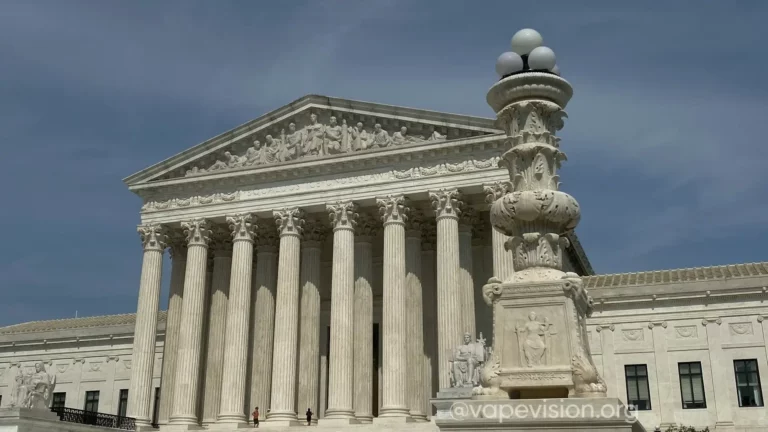WASHINGTON, July 2 - The U.S. Supreme Court will soon address the U.S. Food and Drug Administration’s (FDA) decision to deny applications from two companies seeking to market flavored vape products, which the agency claims pose significant health risks to young users. This follows an appeal by the FDA after a lower court ruled that the agency did not adhere to proper legal procedures under federal law when it denied these applications.
The Supreme Court is set to hear the case in its upcoming term, beginning in October. The appeal involves two e-cigarette liquid manufacturers, Triton Distribution and Vapetasia LLC, who submitted FDA applications in 2020 for products with flavors such as sour grape, pink lemonade, and crème brulee, along with names like “Jimmy The Juice Man Strawberry Astronaut” and “Suicide Bunny Bunny Season.”
In 2016, an FDA rule classified e-cigarettes as tobacco products, subject to regulation under the 2009 Tobacco Control Act. This classification requires manufacturers to seek FDA approval to continue selling their products. Although the FDA maintains it has not outright banned flavored e-cigarette products, the agency requires that companies seeking approval must meet stringent legal standards due to the “known and substantial risk to youth” posed by these products.
To gain regulatory approval, companies must demonstrate that their marketing strategies are “appropriate for the protection of public health.” The FDA denied the applications from Triton and Vapetasia, along with over a million other products. As of now, the FDA has approved only 27 e-cigarette products, all of which are tobacco or menthol flavored.
In 2021, Triton and Vapetasia appealed to the 5th U.S. Circuit Court of Appeals in New Orleans to review the FDA’s decision. In January, the full panel of 5th Circuit judges ruled 10-6 that the FDA acted arbitrarily and capriciously, violating the Administrative Procedure Act by denying the applications without considering the companies’ plans to prevent underage access and usage.
Judge Andrew Oldham, appointed by former President Donald Trump, noted in the ruling that the FDA initially requested detailed plans from e-cigarette companies on how they would market their products to avoid youth misuse. However, the FDA then denied their applications without reviewing these plans. Oldham stated that this approach did not meet the agency’s obligation to “turn square corners,” or deal straightforwardly with companies.
Eric Heyer, an attorney for Triton, expressed that the company looks forward to the Supreme Court reviewing the FDA’s unexpected imposition of new study requirements and its failure to follow its own guidance for applicants.
The 5th Circuit’s decision created a discrepancy with other federal appellate courts that have issued conflicting opinions on the matter, prompting the FDA to appeal to the Supreme Court.



